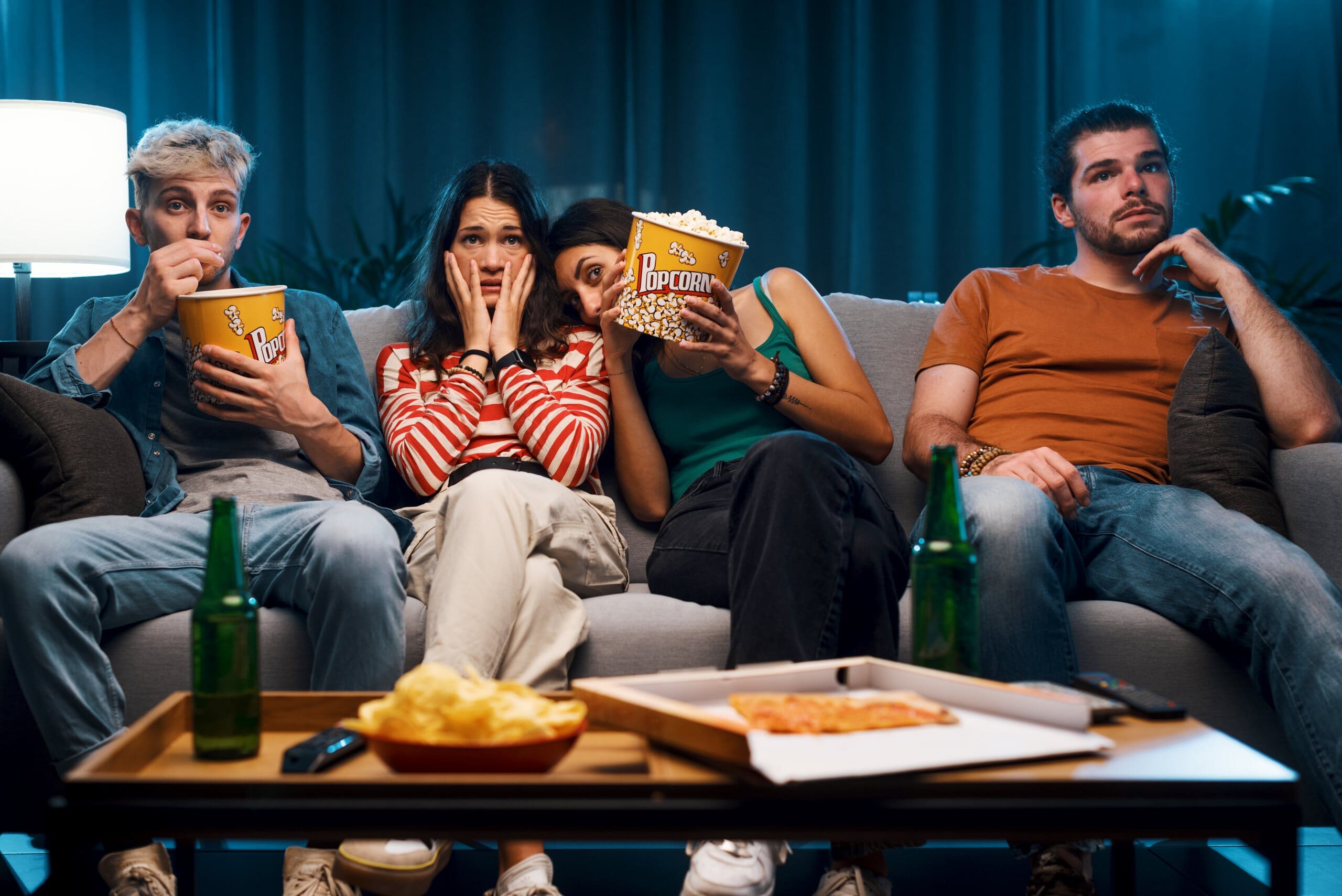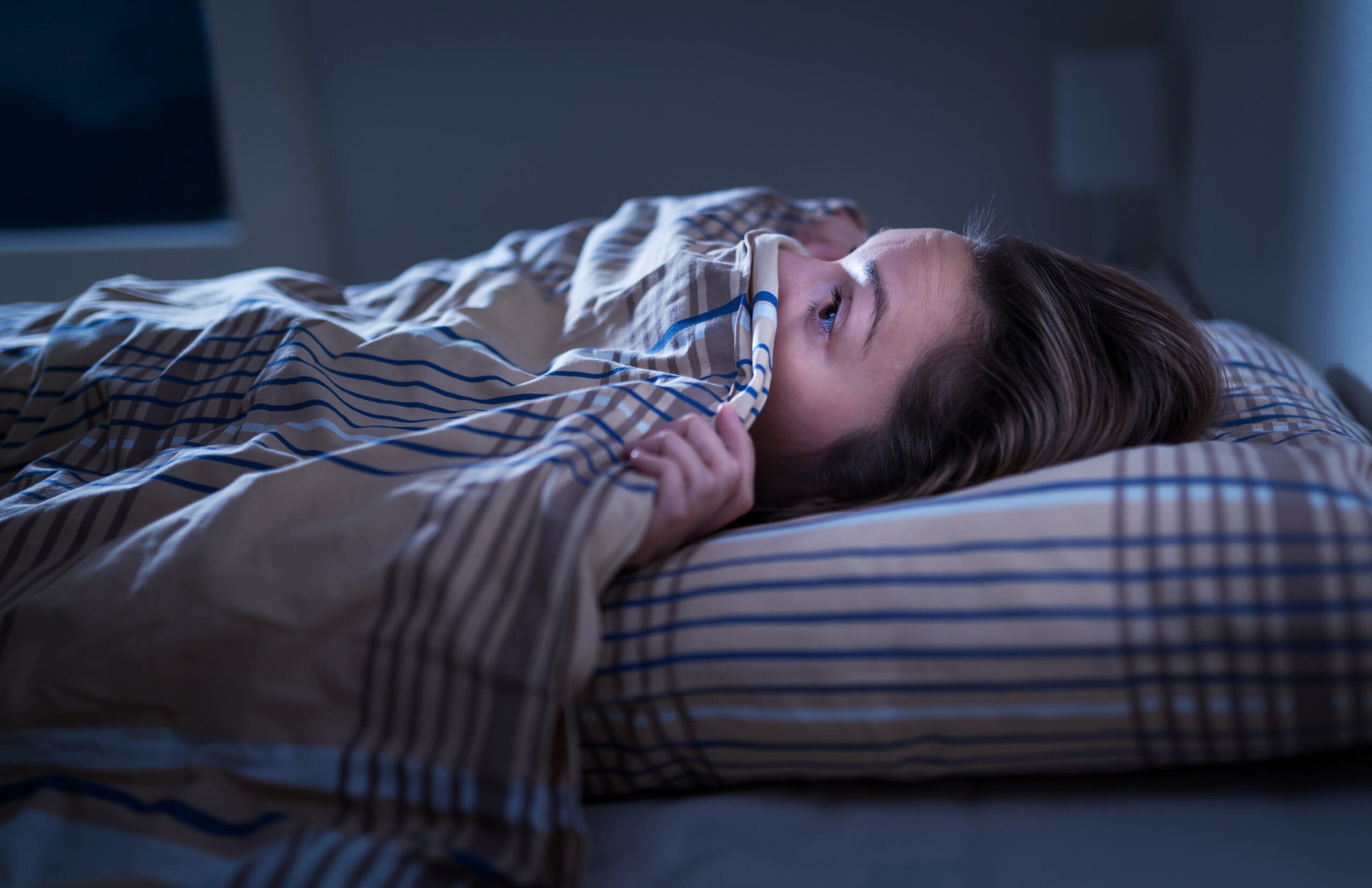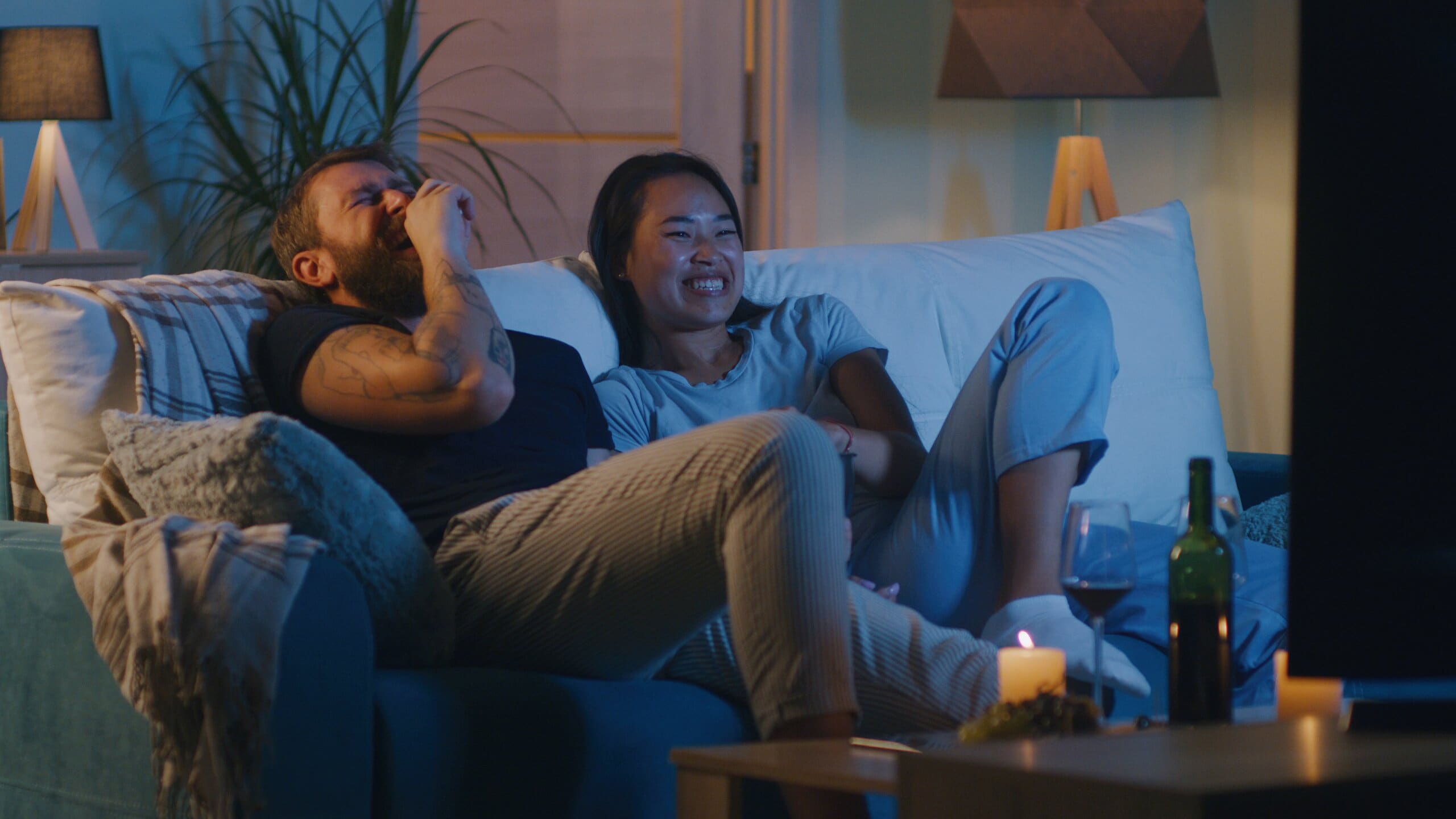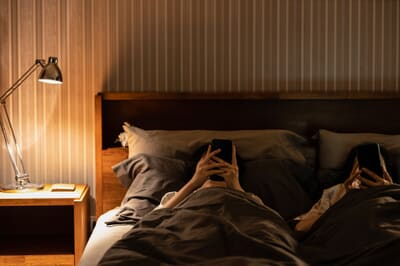Can’t sleep after watching a scary movie? We’ve all been there. Whether you’ve just watched a horror movie or thriller, read a particularly dark chapter of a book (looking at you, Stephen King), or binged a surprisingly gory television series, you might have the urge to hit the lights off and sprint upstairs to your bedroom or keep the lamps on all night.
Of course, we all know that such feelings of dread or uncomfortableness towards the imaginary foes lurking in the dark corners of our homes are all in our heads, but that doesn’t stop our minds from racing through all the possibilities of what could be out there or giving us a nightmare or two once our heads hit the pillow.
So, even if we know that zombies aren’t going to infiltrate our bedrooms (probably), and the likelihood of a mass murderer living next door is slim, what can you do to calm your mind down, avoid night terrors, and settle into bed after an exhilarating evening of horror?
Keep reading to learn our top tips for how to sleep after watching a horror movie!
Why is it so hard to sleep after a scary movie?
For most of us, the main reason we subject ourselves to watching scary movies and TV shows or reading creepy books before bed is for the adrenaline rush that comes with exposing ourselves to such intense situations without actually being physically present.
However, this same satisfying hit is also the reason why it can be difficult to fall asleep after a late-evening dose of horror. This is because this adrenaline release is also accompanied by our body’s fight or flight response, which puts us on high alert for possible threats.
Think of it this way – your body has spent the last 2 hours or so perceiving potential danger at the actions happening on screen or page, putting you on the edge of your seat as you wait for those jump scares. As a result, your body won’t instantly go back to normal settings once the credits roll.
Instead, your body’s levels of cortisol (the stress hormone) and adrenaline will continue to sit at higher levels for a while after, and it can take some time for these hormones to settle again – hence why you might wind up lying awake in bed several hours after getting tucked in beneath your sheets.

Our tips for how to sleep after a scary movie or book
So, given that the increase in stress that comes with watching most horror movies is unavoidable, what can you do to reduce your adrenaline and cortisol levels once you’ve switched the screen off and checked every room in your home for ghosts and ghouls?
Well, fortunately, we have some expert tips to hand that you can try in order to help your mind and body relax as you drift off into (hopefully) pleasant dreams:
1. Talk about it and rationalise
As the saying goes, a problem shared is a problem halved, and that goes for being scared too. Whether by yourself or with your partner or friends, talking out loud about the film or show you’ve just watched can help you rationalise your fears.
Basically, hearing yourself or others talk about the film out loud can help you understand just how silly it is to imagine it happening in real life. For example, a bunch of tiny gremlins taking over your home during Christmas is just not going to happen, and talking about it just gives you a chance to laugh about the whole thing.
On the other hand, if the movie was about something slightly more realistic than aliens or immortal serial killers hunting down campers, such as someone breaking in at night, think about whether you would’ve been any more scared about this sort of thing had you not watched the movie – because in reality, nothing has changed!
Alongside this, talking about the cinematography can help too, such as the camera angles and lighting, and how it all came together to deliver the film's best (or unintentionally funniest) scenes. This will help you view the film as exactly that - a movie, rather than real life.
2. Face your fears
Also known as exposure therapy or ‘flooding’, facing your fears is a technique often used when treating phobias as a way of helping you to get over any perceived fears quickly through forced exposure over an extended period of time.
Say, for example, you’re scared of the dark after watching a scary movie, you can force yourself to turn the lights off and get into bed at a slow and measured pace, indicating to your mind and body that there’s nothing to be afraid of.
The same is true if you’re afraid that you’re going to look in the mirror and see something when brushing your teeth. Instead of avoiding your mirror, force yourself to look into its corners as you finish your nighttime routine. While it might seem scary at first, after a while you’ll realise that nothing bad is happening.
At the end of the day, this sort of horror and gore is fictional and is not something that can impact you in real life. And you’ll need to go to sleep at some point, so you might as well just force yourself to do it sooner rather than later!

3. Watch the movie bloopers or behind-the-scenes clips
When you’re frightened of the scary characters in a horror movie, even temporarily, you might irrationally think they’re real or could even be in your house. But one easy way to get this out of your head is to view them exactly as they are - characters played by actors.
Once the film is finished, have a search on YouTube (or the DVD if you’re feeling old-fashioned) and find clips of the actors filming or bloopers of them messing up. This will reassure you that the characters aren’t real and are just average people playing a part.
Interviews with actors talking about the film can really help with this too, as it will reiterate to your mind that such a story is completely made up by clearly separating the actor from the character.
4. Distract yourself and relax your mind
A common way of getting over a horror movie or thriller is to watch something of a completely opposite genre, like a comedy or a romance. So, if you have time before bed, why not switch on some cartoons or a funny show and remind yourself that it's not all gore and suspense?
Laughter, in particular, is a great tool for helping to dissipate your fears by increasing the production of endorphins (the feel-good hormones), which makes it far easier to relax and calm any rushing thoughts.
Alternatively, you can also distract yourself with something that requires focus, such as a crossword or sudoku. If your brain is concentrating on something intently, you’ll be less likely to think about what you’ve just watched.
Regardless, no matter how late you finish watching your horror movie of choice, it’s important to stick to your bedtime routine rather than deviate from it, as this will help reorient your mind to more familiar surroundings.
5. Amend your surroundings
If you’re really too scared to sleep after dabbling in the horror genre, try changing things up in your bedroom for a fresh and secure perspective. Lots of people feel more relaxed when their door is shut, so why not do a round of your house to check that all of your doors and windows are locked?
Naturally, if you have a partner staying with you, you can always snuggle up to them once you’re in bed for that sense of added safety, and if you have a family pet, like a dog, why not let them sleep on your bed for a change? There are plenty of benefits to sleeping beside your dog or napping with your cat besides their calming presence.
Finally, if you have a TV in your room or a laptop close to hand, you can always leave it playing on something neutral, like a sitcom or background music, to provide additional sound that can make you feel less lonely. And worst comes to worst, you can always sleep with a dim light on to banish the dark in your room.

Can watching too many horror movies cause insomnia?
The topic of whether or not watching or reading too much horror can cause insomnia is up for debate and is usually dependent on the individual in question. Some people can shrug off the effect of scary stuff off as soon as it’s over, while others may struggle for a much longer time to rid their minds of the plot they just watched.
One thing is for certain, however, and that is that horror movies do raise cortisol levels, which notoriously make it hard to sleep. So, if you watch scary movies or TV shows every night, there’s a chance you’ll consistently struggle to get to sleep straight away.
On the other hand, viewing horror content consistently can desensitise you to the tension you experience while watching it, with your body less likely to perceive incoming scenes and scares as threats, meaning scary movies will have less of an impact on your stress levels as time goes on.
At the end of the day, if you’re struggling to get to sleep every night, and you also consume a lot of horror and gore, we’d recommend giving yourself a break to see if it helps. After all, there are plenty of other good films and shows out there that won’t get your heart racing quite as fast!
Optimise your sleep set-up to help drift off quicker
So, those were our top tips on how to get to sleep after watching a horror movie. However, one thing we didn’t mention is how important it is for your bedroom to be as comfy as possible if you want good sleep to come naturally – and the best way to do this is with a comfortable mattress and supportive bed frame! A creaky old bed isn't going to help you calm your jitters after all...
From regular double mattresses to king-sized bed options, we have something for everyone in the MattressNextDay range. Take a look at our collection today to find your perfect mattress, and then take advantage of our free and next-day delivery options.
And don’t forget to check out the rest of our sleep blog for more helpful pieces like this one, which will have you drifting off into a peaceful slumber in no time!




